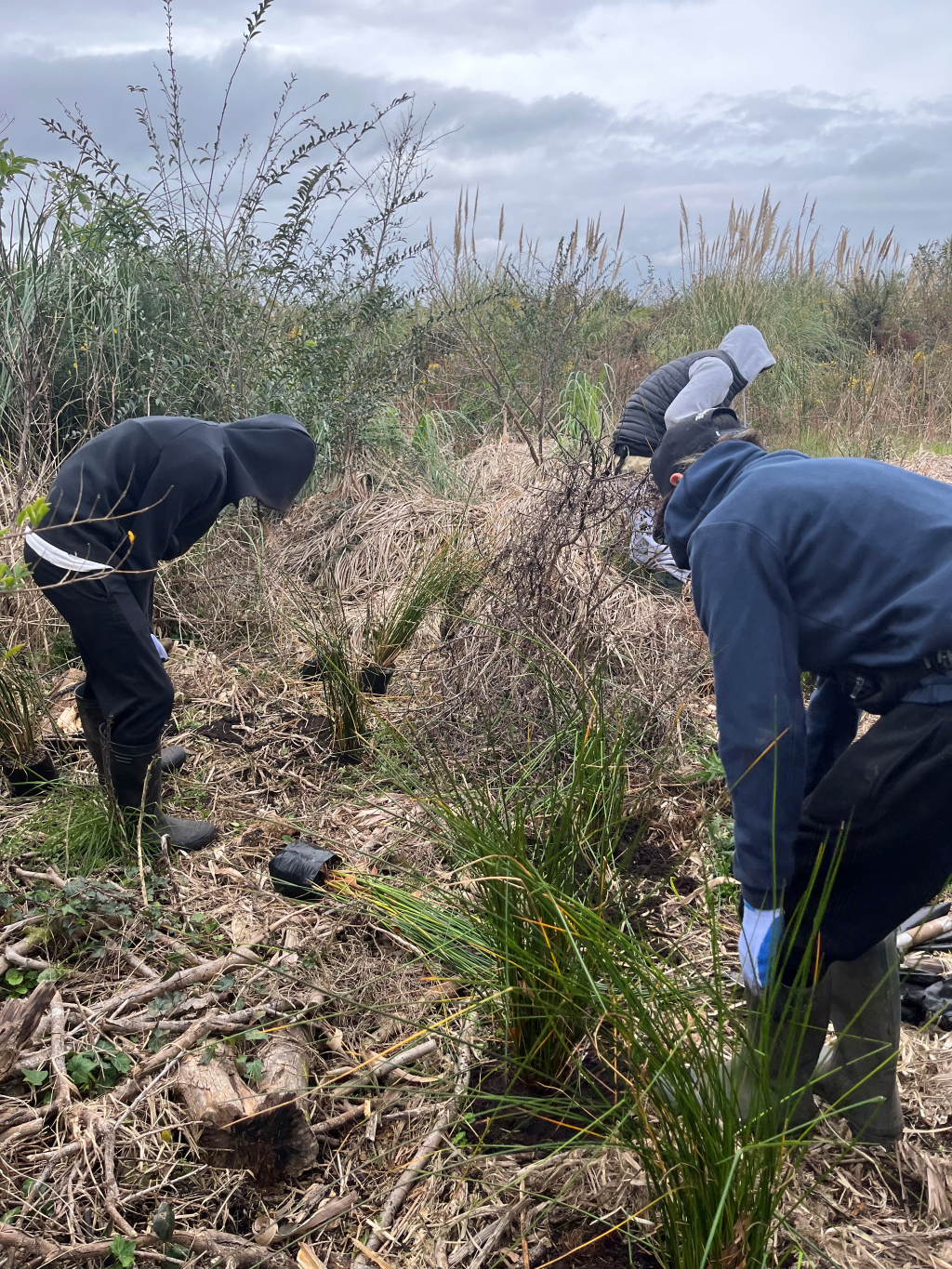Led by Oranga Tamariki, in partnership with Community Waitākere, the young people completing community service hours get a chance to reconnect with their whenua.
The project is aimed at restoring the Orangihina Harbourview Reserve in Te Atatū Peninsula. It contributes to the protection of local wetlands, home to native flora and fauna including the at-risk Fernbird | Mātātā.


